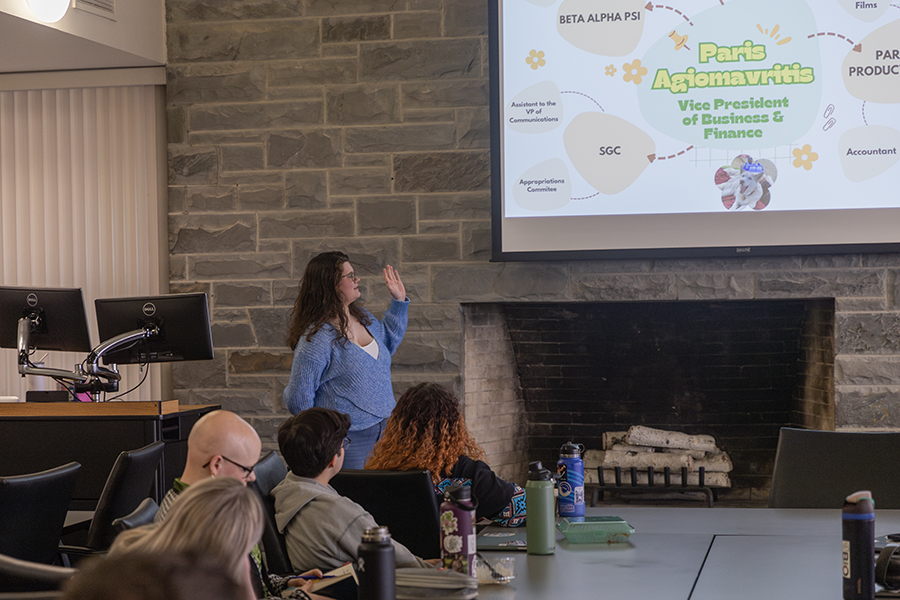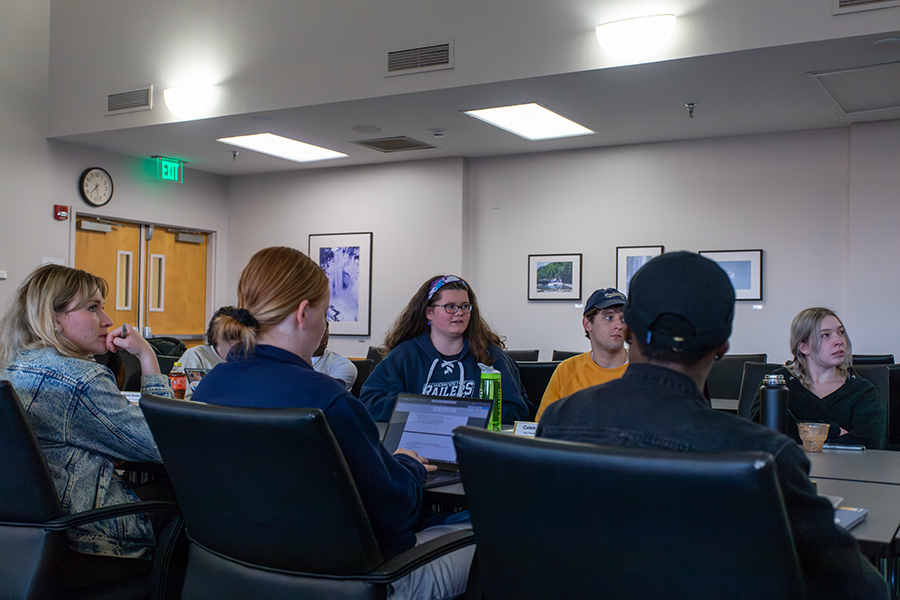Self-proclaimed “fermentation revivalist” Sandor Ellix Katz dropped by Ithaca College yesterday to discuss healthy diets and the benefits of food localization.

An advocate of fermentation, or turning carbohydrates into alcohol and carbon dioxide, and social change, Katz has recently addressed crowds in the Town of Ithaca and at Cornell University to share views published in his books — “The Art of Fermentation” and “The Revolution Will Not Be Microwaved.”
Connecting fermentation of natural foods to grassroots activism and the need for policy change, Katz designed his presentation to focus on the political aspect of reclaiming a healthy diet and localizing food products across the country.
Kelly Dietz, assistant professor of politics at Ithaca College, heard Katz would be in town and invited him to speak on campus.
“Knowing that a lot of our students and faculty are interested in the relationships among the environment, justice and the food system, I was pleased we were able to bring him here,” Dietz said.
Each of his local presentations had a different angle, according to Nick Vaczek, a volunteer at Sustainable Tompkins who followed Katz on Sunday and Monday to ensure his visits went smoothly. Katz’s presentation last night on South Hill delivered more of a political feel.
“Since he was brought in by Ithaca’s politics department, that was the angle he took today,” Vaczek said.
Katz began by discussing the most prominent agro-socio-economic movement that involves society moving away from corporations as food providers and toward local farming and sustainability.
“In the United States, regional agriculture has been superseded by this idea of centralized, efficient production that can be shipped to wherever people are,” Katz said. “But since the 1990s, there’s been this growing recognition that there are a lot of advantages to local and regional food.”
Whether it’s in terms of global energy efficiency or overall personal health improvement, Katz said he believes the benefits of this type of farming and distribution also include local economic growth.
“If we buy local products, especially directly through the producers, we are stimulating economic development,” Katz said.
Katz said much of every dollar spent at a supermarket is allotted for an advertising, marketing and packaging infrastructure. Therefore, Katz said, keeping money local means people will have more incentive to farm and stimulate the regional economy.
To link food production to the political spectrum, Katz argued that sometimes laws enacted to protect us against foods that may not be safe to eat can eliminate the possibility of small-scale informal production.
“In the United States and increasingly around the world, small-scale production is being made impossible,” Katz said. “There has to be recognition in our regulatory system that the standards that you apply to large corporations are not appropriate for people who produce small amounts of food.”
Social and political change in the system of food production, Katz said, can only happen if people protest.
“When people get excited and believe in change, they get bubbly and want to share ideas,” Katz said. “So, really, fermentation is one of the most important engines of social change.”







